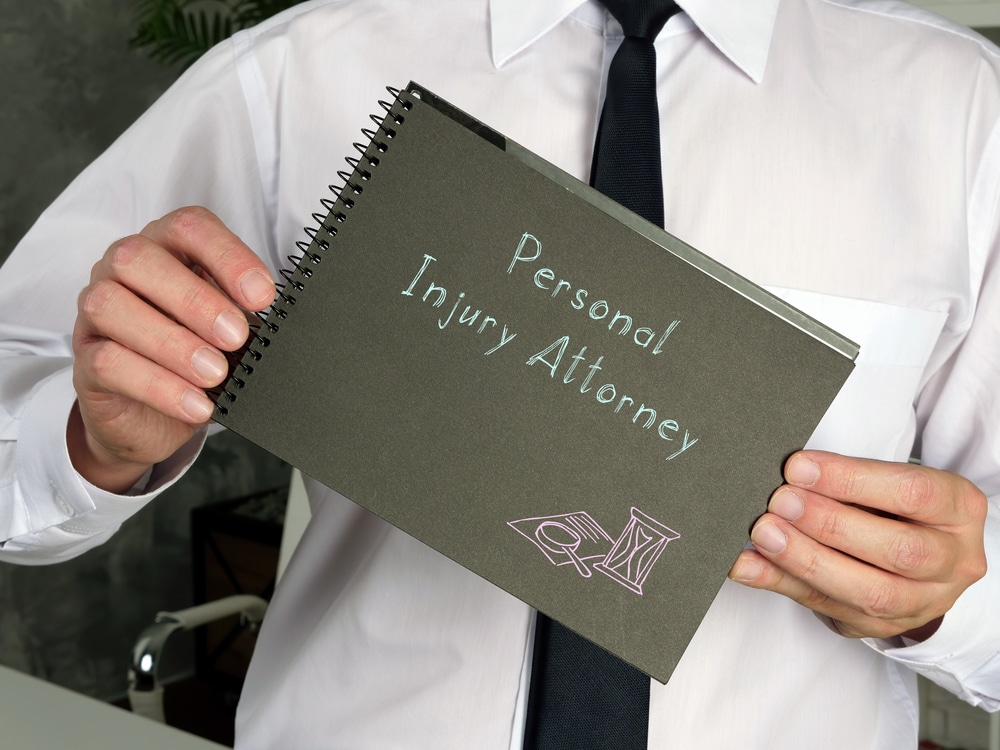If you’ve been injured due to someone else’s negligence, you may be wondering how to start a personal injury claim. The personal injury claim process can seem intimidating and confusing. However, with the right guidance and information, you can ensure that your claim is handled properly and you receive the compensation you are entitled to. Below, we’ll provide a step-by-step guide on how to start a personal injury claim so you can take the right steps to get the best outcome.
Know if You Have a Case
The first step to starting a personal injury claim is to determine if you have a case. You can do this by scheduling a consultation with a qualified attorney. During the initial consultation, your attorney will discuss the specifics of the incident, such as how the incident occurred, who was involved, and what injuries were sustained. The attorney should provide an assessment of the personal injury claims and advise on how to proceed.
Before making a claim, it is important to conduct an investigation. This includes visiting the scene of the accident, obtaining accident reports, and identifying parties at fault. The attorney may also request any relevant medical records, including your doctor’s prescription for treatment, as well as receipts for out-of-pocket expenses.
If you are injured, it is critical to follow your doctor’s prescribed course of treatment. Keep a journal of all the medical providers you visit, the out-of-pocket expenses you incur, and any dates of missed work due to treatment. This information may be useful in proving your injury claim in court.
Choose the Right Attorney
Finding the right attorney is one of the most important decisions you can make when filing a personal injury claim. It is essential to have an experienced lawyer on your side who knows the ins and outs of personal injury law and has a proven track record of success in this field.

When selecting a personal injury attorney, make sure to look for someone who is qualified to handle your type of case. Not all attorneys specialize in the same type of claims, so it’s important to ask questions and do your research. Here are some questions to consider when choosing a personal injury attorney:
- Does the lawyer have experience with similar cases?
- What percentage of their practice is devoted to personal injury cases?
- Does the attorney have any special certifications or qualifications related to personal injury law?
- How long have they been practicing law?
- What is their success rate?
- Are they willing to communicate with you regularly about your case?
You should also evaluate the attorney’s fees and payment structure. Ask about how their fees are calculated and determine if you will be responsible for paying costs like court fees or other related expenses. Once you’ve made an informed decision and chosen the right attorney for your case, be sure to stay in regular contact with them so you can remain up to date on the progress of your claim.
Gather Evidence & Investigation
One of the most crucial steps in the personal injury claim process it to to make sure you have enough evidence to prove your case.
- Physical evidence of an altercation may range from a weapon to tangible objects.
- Scene or accident evidence may include skid marks, broken glass, or weather patterns.
- Documents for the injury may include medical data, insurance forms, bills, incident reports, and statements.
- Witnesses providing testimony may be observers, family members, or friends. Photos and video may also be used as evidence.
It’s essential to begin gathering and preserving all evidence as soon as possible. Contacting a lawyer right away is also recommended as they can advise you on the best approach to collecting evidence. During the investigation process, your attorney may hire a private investigator to collect and review evidence.
They will look into the details of the incident and the circumstances surrounding it. This could include interviewing witnesses, obtaining records, and analyzing evidence like videos or photos. With their help, you can have confidence that all of the facts will be taken into account when assessing your claim.
Submit Your Demand Letter
The demand letter is a vital step in the personal injury claim process. This is the document that officially launches negotiations with the other party. Additionally, it lets them know that you are seeking damages for the injuries and losses you have experienced due to their negligence. Writing a compelling and legally sound demand letter is an art form. That said, it’s best to consult a personal injury lawyer to make sure your document is effective.
If the other party, whether it is an insurer or a large company, does not respond favorably to your demand letter, it may be necessary to pursue legal action. A law firm can provide you with sample demand letters for most types of personal injury, medical malpractice, and motor vehicle accident cases.
Make sure that the demand letter includes a clear statement of facts, a description of your injuries, and an itemized list of the damages you are seeking. The tone should be civil yet assertive, and you should not be afraid to include a deadline for when you expect to receive a response.
Negotiate With The Other Part
The negotiation process is an important step in the personal injury claim process. Generally, either party may make an initial offer to settle the claim. This offer may be accepted, denied, or countered by the other party.
Your attorney will write a demand letter outlining your losses and damages as well as your settlement demands. This demand letter can be used as leverage in negotiations with the other party or their insurer. In most cases, you will be offered a settlement amount that is much lower than what you originally requested. You must decide whether to accept this offer or not.
It is important to note that once you sign a settlement agreement, you give up the right to pursue any additional claims related to the injury. For this reason, it is highly recommended that you consult with a lawyer before agreeing to the terms of a settlement offer.
When negotiating a settlement, there are several factors that need to be taken into consideration. These include the extent of the injuries, liability for the cause of the injury, contributory negligence laws, and your state’s statute of limitations. All of these elements will affect the final settlement amount that you receive.
When considering how to start a personal injury claim, it is important to understand that negotiating a settlement is part of the process. Your attorney will be able to provide assistance and advice throughout this process, so it is important to speak with them before making any decisions.
Getting A Potential Settlement
Settlement is an agreement for the plaintiff to accept a specified sum in exchange for not pursuing the case in court. This is an option that should be discussed and considered by all parties involved. Settlements are generally negotiated between the plaintiff and defendant, and there is a risk that the plaintiff will get less than they might have gotten from a verdict. The defendant offers to pay something now to avoid the expense and risk of going to trial, but the verdict could go either way.

For most plaintiffs, taking a guaranteed settlement sum is better than gambling on the outcome of the trial, even if the amount of the verdict could potentially be higher. The settlement amount may also come with certain conditions that should be discussed with a personal injury attorney prior to accepting it.
It’s important to understand the details of any settlement you agree to, including the consequences of rejecting it. Ultimately, it’s up to the plaintiff to decide if a settlement is worth accepting or if taking the case to court is the better option.
Litigation
If an individual is unable to reach a settlement agreement with the at-fault party or the insurance company through negotiation, they may need to proceed with litigation. Litigation is the process of taking legal action through the court system, and the goal of personal injury litigation is to compensate the injured party for losses resulting from an accident or negligent conduct.
There are three types of claims in personal injury law: intentional torts, negligence, and strict liability. Intentional torts involve a deliberate or intentional action that harms another person; negligence involves an unintentional or careless action which results in harm; and strict liability does not require proof of fault.
The personal injury claim process can be difficult for those going through it. There are several difficulties faced during personal injury litigation, such as determining fault, calculating damages, and understanding the nuances of state laws regarding compensatory damages.
A plaintiff’s awarded damages may be reduced or limited if they are found to have contributed to their own injury.
If you believe you have a valid claim and have tried unsuccessfully to reach a settlement agreement, you may want to consider taking your case to court. Knowing how to start a personal injury claim can give you the knowledge and confidence to navigate the complex legal system.
Final Words & What You Should Consider
The personal injury claim process is complex and can be overwhelming. The most important thing to remember is to stay organized and be patient. Gather all necessary documents, research applicable laws, and never accept the first settlement offer you get. It’s also important to have a lawyer who is experienced in personal injury cases and can give you sound legal advice.
It’s also wise to know when to pursue a personal injury case and when not to. If your injuries are minor, or if there is only a small chance of winning your case, then it may not be worth it to go through with a claim. Your lawyer can provide advice on this as well.
In the end, the personal injury claim process can be difficult and time-consuming, but if you are able to win your case, you can receive the compensation you deserve for your suffering.





